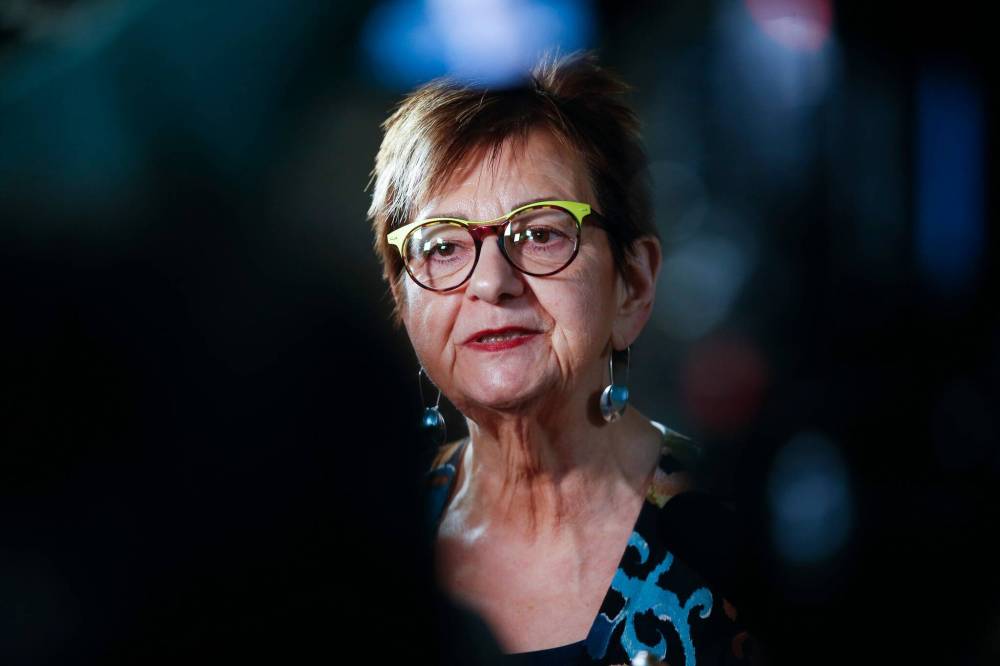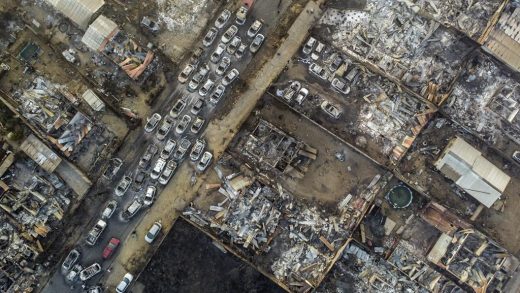
Around-the-clock access to forensic nurse examiners continues to be out-of-reach for sexual assault survivors after the specialty unit at Health Sciences Centre lost two of its permanent staff members.
The departures are the latest blow to the program which has struggled to maintain its workforce of nurses who are trained to gather criminal evidence and support victims of sexual violence amid a government-ordered expansion.
“We should be making progress in these areas, but it doesn’t feel like we are,” Manitoba Nurses Union president Darlene Jackson said. “We’ve lost more staff and it’s worrying. These are very important services to a group of individuals that are probably in the worst time of their life.
JOHN WOODS / WINNIPEG FREE PRESS FILES ‘We should be making progress in these areas, but it doesn’t feel like we are,’ Manitoba Nurses Union president Darlene Jackson says.
“We can’t seem to be very consistent with the program.”
The union raised its concerns with the program’s staffing levels in late January, stating some survivors who went to HSC were being sent home with instructions not to shower or wipe after using the washroom to preserve evidence until a nurse could see them.
At the time, a 13-person casual nurse pool provided on-call coverage in addition to their full-time positions in other parts of the health system; one full-time nurse also worked in the program.
In late March, seven casual nurses quit owing in part to worsening gaps in coverage and the distress of not being able to provide care survivors deserve; nurses who spoke to the Free Press said their calls to develop a plan for when shifts were not covered were unanswered.
The resignations sparked political uproar and spurred HSC to supplement the casual nursing pool with nurse practitioners and a physician coverage model.
The workaround was intended to be short term until six newly hired nurses were fully trained and able to work without supervision later this summer.
Dr. Manon Pelletier, the program’s interim medical director for adult services, said the departure of the nurses for other jobs has delayed plans to provide around-the-clock nursing coverage.
As of last week, four of the unit’s seven nursing positions were filled.
“It certainly means that being able to really run with great, independent nursing coverage is going to take a little bit more time than we were fully expecting,” Pelletier said. “But the staff that we do have… are really, really committed. They’ve really stepped up and they’ve been doing a great job of doing the best they can to cover all the shifts.”
Shared Health said one nurse is working independently, and another has completed training. Two nurses are expected to complete training next month and transition to independent work with some support.
Pelletier said the hospital is actively hiring to fill the vacancies, but as of Thursday, could not provide an estimated timeline for when the unit would be fully trained and staffed.
Occasional gaps in coverage continue to occur, she said.
“We’re working really hard on retention by doing everything to build a super strong team that works well together and that’s one piece we also can control, and that’s been going really well,” she said.
Nurses and physicians are receiving training to pitch in as needed, and a roster of five doctors consistently picks up shifts, she said. Meanwhile, nurses in rural and remote communities are starting to receive education and training to provide forensic nurse examiner services in their regions.
“It’s an incredible team and it’s only gotten better since everything kind of shifted, and with the resignation of staff it’s allowed us to kind of rebuild from the ashes,” Pelletier said, noting the program will provide significantly better care provincewide when it’s at full capacity.
Shared Health said 11 people who went to HSC requiring a forensic exam between Feb. 1 and May 31 were told to return at another time or to wait in the emergency department until staff was available to assist; seven of those patients presented in February amid significant staffing shortages.
Physician coverage was implemented on March 24, and between March 1 and May 31, four people were given instructions to return at another time, including one in March and three in May. In that period, 105 people showed up for exams.
Children under 14 are now being examined by physicians with the Child Protection Centre and no gaps in coverage were reported since the end of March.
“We’re very committed to having 24-7 coverage so that anybody who needs our service feels like they will come and be seen,” Pelletier said.
“We’re still striving for zero gaps and doing anything we can when there is a gap to mitigate.”
In addition, a longtime program co-ordinator has moved on from their nursing role, in addition to the two who quit, Jackson said.
The province must listen to front-line providers if the SANE program is to be successful, the union head said.
“Nurses very seldom bring an issue to the table without bringing a solution with it,” Jackson said.
Health Minister Audrey Gordon’s office did not respond to a request for comment. Last month, Gordon said the program would be fully staffed this summer.
NDP health critic Uzoma Asagwara said the staffing setback shows the government’s inability to follow through on it commitments.
“By their own targets, they’re falling way short and it’s devastating because the impacts on Manitobans are consequential,” Asagwara said. “The fact that we’re having this conversation again during a time when the government committed to things being fixed is a total failure.”



